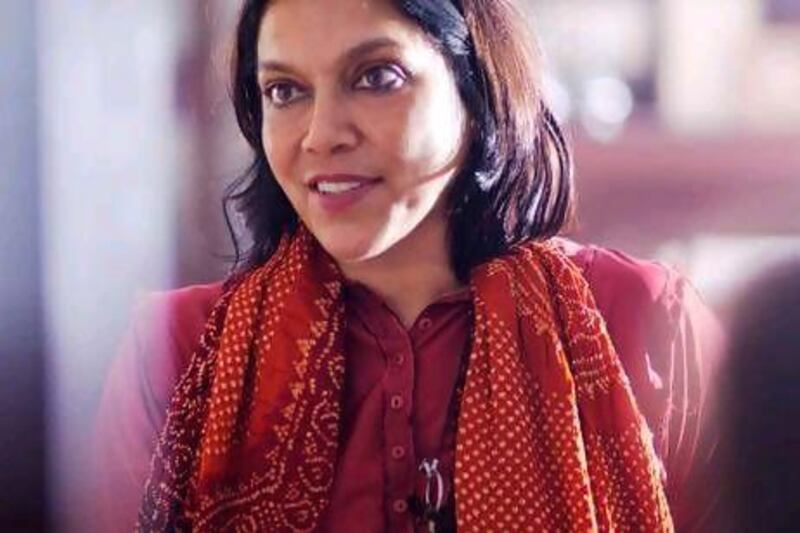There can't be many directors whose films have opened half of the editions of a particular film festival. Granted, this year is only the fourth Doha Tribeca Film Festival, but it's still impressive that Mira Nair, whose film Amelia opened the inaugural festival in 2009, returns to open this year's Doha Tribeca on Saturday with The Reluctant Fundamentalist.
This time around, the gala screening at Doha's Al Rayyan Theatre in Souq Waqif is likely to feel all the more special for Nair because the film, adapted from Mohsin Hamid's bestselling and award-winning 2007 book, was made possible with the help of funding from the Doha Film Institute (DFI).
"It's a beautiful circle," says Nair on her return to Doha. "And it's one that I hope will carry on. It's a great testimony to the DFI's abiding belief and faith in the film because it was one of the most difficult to finance and make, and they stood by us from inception to this moment."
A little over a year ago, the Doha Film Institute announced The Reluctant Fundamentalist as the second major international film to receive funding after Black Gold, Jean-Jacques Annaud's Arabian epic, which opened last year's festival. Since then, The Reluctant Fundamentalist - which tells the story of Changez, a Pakistani graduate in the US whose life is turned around and belief system thrown into doubt in the aftermath of September 11 - has filmed in Delhi, Istanbul, New York City, Atlanta and Lahore. Filming followed a lengthy casting process, during which several countries and continents were scoured to find someone suitable for the lead role. Eventually, Nair selected the rising British Pakistani actor Riz Ahmed, who, coincidentally, also starred in Black Gold. Kate Hudson, Kiefer Sutherland, Liev Schreiber, Shabana Azmi and Om Puri were also cast.
Although the film, which premiered in Venice, has only come together in the past couple of years, its development has been a somewhat lengthy journey for Nair. In fact, she was already working on it when she sauntered down the opening-night red carpet for Amelia in 2009.
"I bought the rights to the book just before it was published," she says. "I had been given a manuscript by a young friend who interned at The Nation in New York, and I just loved Mohsin's first book, Moth Smoke, as everyone else did."
A year earlier, Nair had visited Pakistan for the first time, going to Lahore, where her father was educated before the Partition and where much of the story is set.
"I had never been there before, but I had been growing up with the poetry and music and songs. It was really very moving and deeply familiar to go there, and that made me think that I wanted to make something about modern Pakistan."
The manuscript for the then-unpublished book gave Nair what she thought would be a platform to speak about modern Pakistan. "But more than that, including a dialogue with America. And these are countries I think are in dire need of a conversation. A real, human dialogue."
Adapting the book, which mainly consists of a monologue as Changez describes to an American stranger his transformation from Ivy League and Wall Street wunderkind to firebrand anti-American radical, took three years. With Hamid "deeply involved" throughout, the story was expanded to give further depth to the characters. The nameless American stranger became Bobby, played by Schreiber, while Changez's beautiful and damaged love interest Erica (Hudson) was developed further.
"There were certain things I was very passionate to bring to the film, things that were hinted at in the book but not necessarily shown," says Nair.
Readers of the book will have noted that it is a story laden with symbolism and metaphors, with the lead characters and their developments slowly coming to represent their various countries and societies in a world torn apart by the events of 9/11. And this is something Nair was keen to keep in the film.
"The book has its enigma and certainly ambiguity. But I hope we preserved that mystery, the tension," she says. "The whole important scheme I followed was to create a tightrope in the telling that would always make you question: is he or isn't he a terrorist? Someone called it a human thriller and I loved that because it's really about a boy's coming of age, finding his voice in a global world and asking the fundamental question: who am I?"










